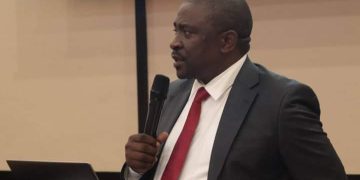Maseru
In Lesotho’s High Court, justice is not determined by law and evidence alone—language holds a powerful, often decisive role. The words of lawyers, the crafted arguments, and the strategic use of rhetoric all have the potential to shape the outcome of a case. While legal rhetoric—the art of persuasion in the courtroom—can ensure fair trials, it also creates significant barriers for those unable to navigate its complexities. In a system where access to justice should be universal, the intricate language of the law often serves to exclude the very people it is meant to protect.
In a society where access to justice should be a fundamental right, the language of the law often excludes the very people it is meant to protect. Many ordinary citizens, lacking formal legal education, struggle to understand the legal jargon, convoluted sentence structures, and Latin expressions that dominate court proceedings. This linguistic gap creates an imbalance of power, where those who can afford skilled legal practitioners gain an advantage, while the marginalized are left to navigate a system designed for the elite.
The power of legal rhetoric lies in its ability to shape perception. Lawyers do not merely present facts; they frame narratives, appeal to emotions, and establish credibility through strategic language use. Aristotle’s three pillars of persuasion—ethos (credibility), pathos (emotional appeal), and logos (logical reasoning)—are deeply embedded in the practice of law. A well-crafted legal argument does not just state the law; it convinces, persuades, and influences.
However, while rhetoric is an essential tool for advocacy, it can also be a weapon of exclusion. The excessive use of legal jargon distances the law from the people it serves. Latin phrases such as habeas corpus or stare decisis may add to the prestige of legal discourse, but they also alienate those who do not speak the language of the courts. For many defendants and plaintiffs, stepping into a courtroom feels like entering a world where words hold power they cannot access—a world where justice is spoken in a language they do not understand.
This exclusion is particularly evident in cases involving gender-based violence, where survivors often struggle to articulate their experiences in legally persuasive terms. A woman seeking justice against an abusive partner may find her emotional testimony dismissed in favor of a defense attorney’s meticulously crafted argument, laden with legal technicalities. The legal system, designed to be impartial, can sometimes become a space where language determines whose voice is heard and whose suffering is validated.
Beyond individual cases, legal rhetoric influences judicial decision-making. Judges, tasked with interpreting arguments and applying the law, are not immune to the power of persuasive language. A well-structured argument, presented confidently and backed by legal precedent, carries weight. Lawyers who master the art of persuasion are often more successful, not necessarily because their clients have a stronger case, but because their rhetorical skills make their arguments more compelling.
This reliance on rhetoric raises fundamental questions about fairness. Should justice be influenced by how well an argument is framed rather than the truth it represents? If a defendant with a skilled lawyer is more likely to win a case than one with a less experienced advocate, does that not suggest that justice is unequally distributed? These questions highlight the urgent need to reform how legal language is used in Lesotho’s courts.
One way to bridge this gap is by simplifying legal discourse. Many countries have adopted plain language policies to ensure that legal documents are written clearly and comprehensibly to non-lawyers. If Lesotho’s courts were to implement similar measures, it would significantly improve public access to justice. Legal arguments should not be a maze of complex terminology but a straightforward presentation of facts and principles that every citizen can understand.
Furthermore, legal education must prioritize rhetorical training, not just for lawyers but also for judges. Understanding how language shapes legal outcomes can help ensure that judicial decisions are based on substance rather than style. Court clerks and paralegals should also be trained to assist individuals who may struggle with legal terminology, ensuring that no one is excluded from the justice system simply because they do not speak its language.
Legal aid services must also play a stronger role in addressing linguistic barriers. Many individuals facing legal challenges do not have the financial resources to hire top legal practitioners. Strengthening legal aid programs and providing access to well-trained advocates can help level the playing field, ensuring that justice is not reserved for those with wealth and influence.
Ultimately, the reform of legal language is about more than just simplifying words—it is about making justice truly accessible. A legal system that relies on rhetoric must also recognize its responsibility to ensure that all citizens, regardless of their educational background or economic status, can fully participate in the process. Justice should not be a privilege of the articulate; it should be a right for all.
The language of the law should empower, not exclude. If Lesotho is to build a legal system that serves all its people, it must start by breaking down the linguistic barriers that prevent so many from accessing justice. In a democracy, the right to a fair trial should not depend on one’s ability to navigate legal rhetoric—it should depend on truth, fairness, and equality before the law.




